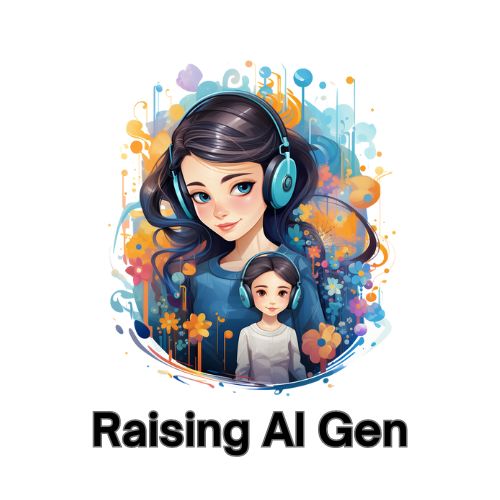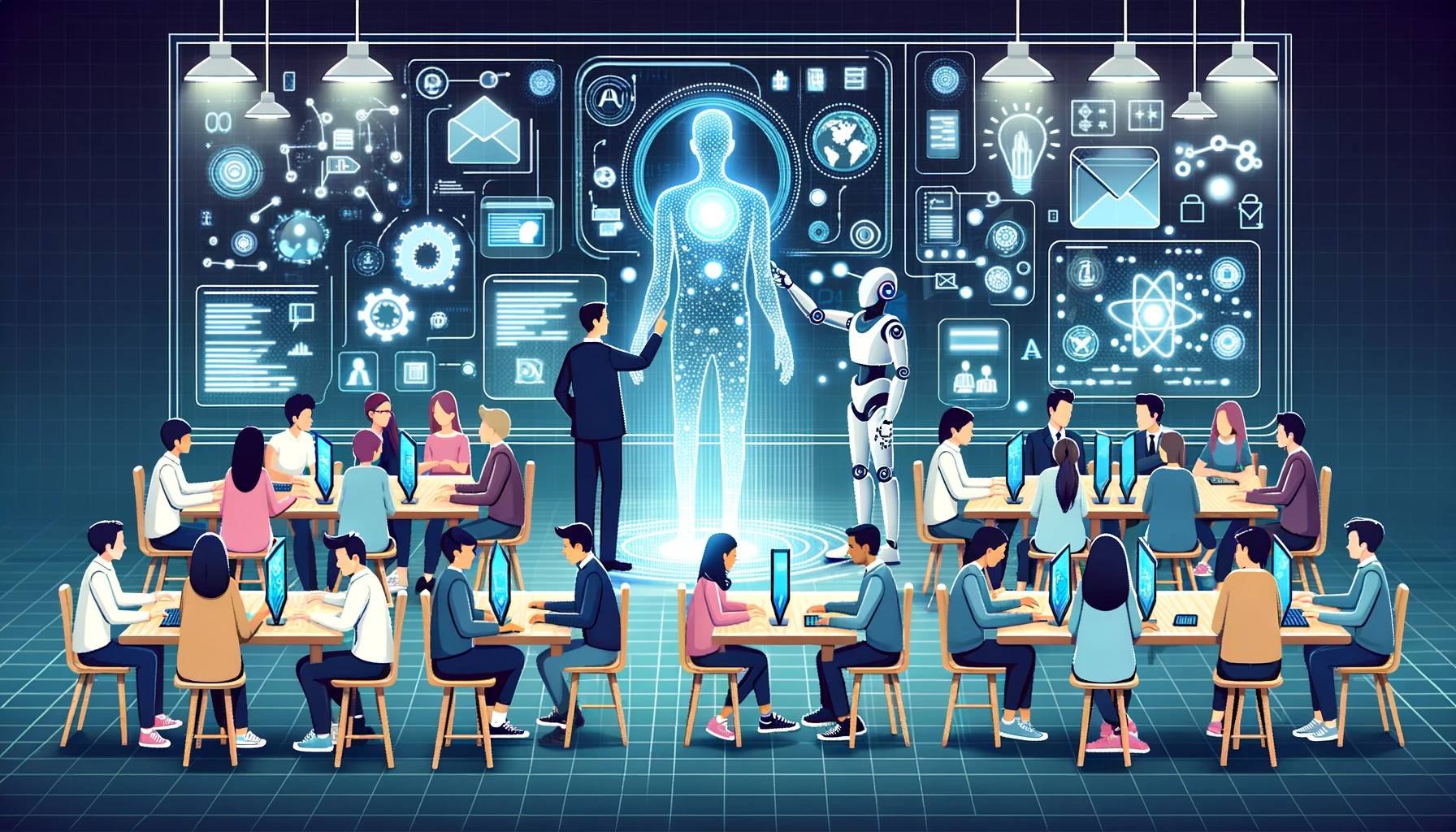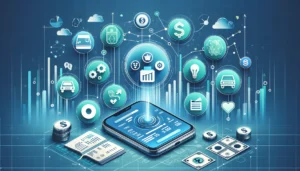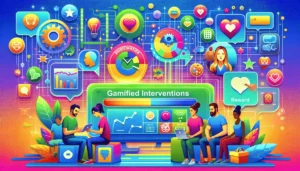In the digital era, education is getting a facelift, transitioning from one-size-fits-all to a more tailored approach thanks to AI Personalized Learning.
This innovative approach is like having a tutor who not only understands your strengths and weaknesses but also knows your preferred way of learning.
It’s not just about making education fit like a glove; it’s about making learning an adventure that you’re excited to embark on each day.
Imagine a classroom that adapts to the needs and interests of each student, ensuring that no one is left behind.
This is not a figment of imagination, but a reality being molded by AI Personalized Learning.
As we dive deeper, we’ll unravel how Artificial Intelligence (AI) is not just a bystander but a catalyst in revolutionizing the educational landscape.
It tailors the learning experience, ensuring each student gets the right amount of challenge and support to thrive.
Whether it’s mastering the intricacies of algebra, or getting a grip on the historical events that shaped our world, AI Personalized Learning is making education more engaging, effective, and exciting.
Quick Takes
Section Key Takeaway The Mechanics of AI Personalized Learning AI creates personalized learning paths, offering a customized learning experience. Engagement, Interaction, and Independent Exploration AI fosters engagement, promotes critical thinking, and allows for independent exploration of topics. Supporting Complex Learning Through AI AI provides detailed explanations, aiding in understanding complex subjects. Keeping Parents in the Loop AI keeps parents informed, enabling tailored support at home. Ethical Considerations Ethical use of AI and data is crucial for successful implementation in education. The Future of AI in Education AI is poised to transform the educational landscape, creating empowered learners ready to face future challenges.
The Mechanics of AI Personalized Learning
AI Personalized Learning is akin to having a personal tutor available 24/7, one that understands your unique learning style, pace, and the areas you need help with.
But how does it achieve this level of personalization?
Let’s delve into the mechanics that power this innovative approach to education.
Understanding Individual Learning Paths
The cornerstone of AI Personalized Learning is its ability to create individualized learning paths. Here’s how it works:
- Data Collection: Initially, AI collects data regarding a student’s performance, interaction with learning materials, and preferences.
- Analysis: The collected data is then analyzed to identify the student’s strengths, weaknesses, and learning style.
- Personalization: Based on the analysis, AI creates a personalized learning path that aligns with the student’s academic level and areas requiring improvement.
This process ensures that each student receives a tailored learning experience, promoting better engagement and understanding.
Real-Time Analytics and Data-Driven Insights
Educators can harness the power of real-time analytics to track a student’s progress, identify areas of struggle, and provide targeted support. Here’s a glimpse into how it unfolds:
- Continuous Monitoring: AI continuously monitors a student’s interactions and performance.
- Instant Feedback: Provides instant feedback, allowing for timely interventions and support.
- Progress Tracking: Tracks progress over time, providing a clear picture of a student’s academic journey.
The integration of real-time analytics not only benefits the students but also empowers educators with data-driven insights to make informed decisions.
For a deeper dive into how AI is transforming classrooms, check out Unlocking the Classroom of the Future: A Comprehensive Guide to AI for Educators.
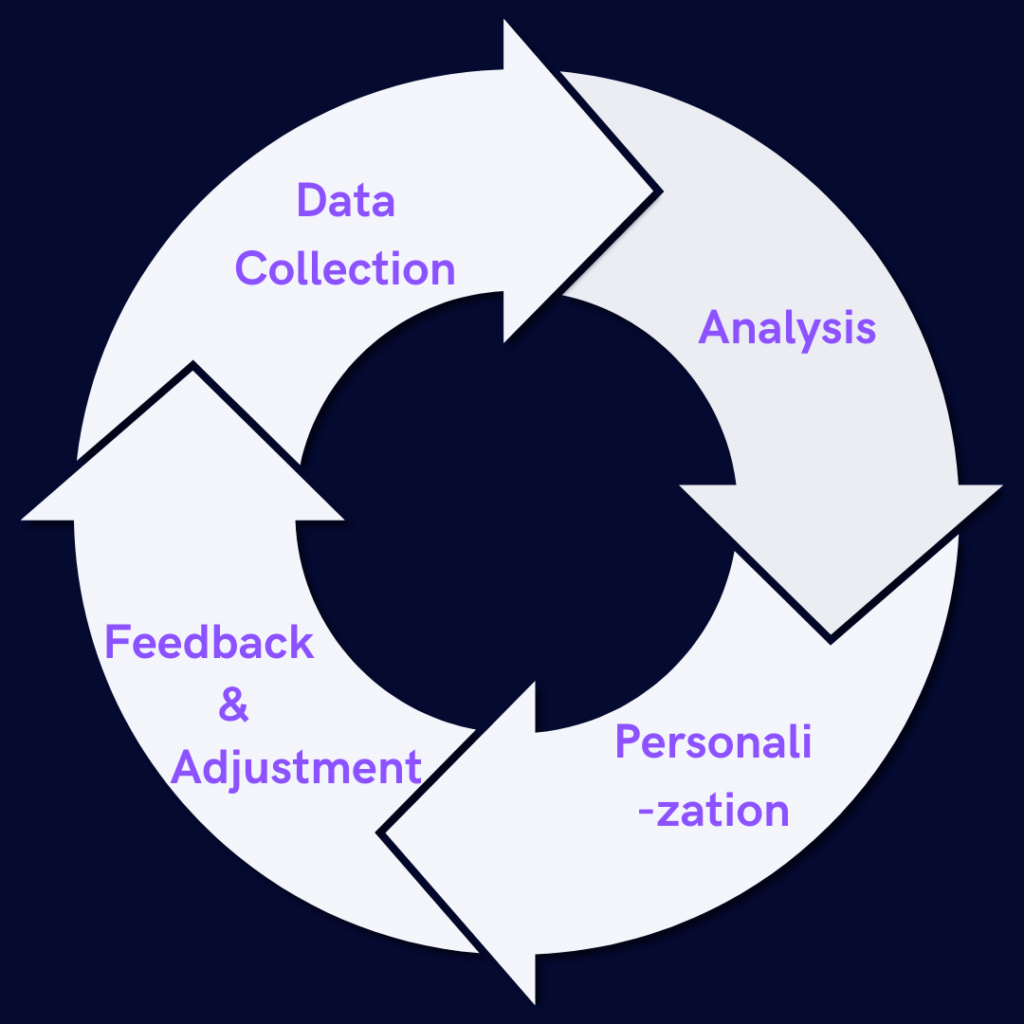
With AI Personalized Learning, the potential to create a more engaging, effective, and individualized learning experience is boundless.
As we harness the power of AI to tailor education to each student’s needs, we step closer to an educational system where every learner can thrive.
Engagement, Interaction, and Independent Exploration
The realm of education is vibrant and dynamic, encouraging students to interact, engage, and explore the world of knowledge at their pace.
AI Personalized Learning amplifies these aspects, making learning a more enriching and interactive experience.
Fostering Engagement and Interaction
Engagement and interaction are at the core of effective learning.
AI elevates these aspects in the following ways:
- Interactive Learning Environments: AI creates learning environments where students can interact with the material, receive immediate feedback, and engage in a way that’s meaningful to them.
- Collaborative Learning: By facilitating group discussions and collaborative projects, AI fosters a sense of community and collective learning among students.
- Engagement Tracking: AI tools can track engagement levels, helping educators identify when students might be struggling or disengaged.
These features ensure that learning is not a solitary, but a collaborative and engaging endeavor.
Promoting Independent Exploration
The ability to explore topics independently fosters a love for learning and cultivates critical thinking skills.
Here’s how AI supports this:
- Self-Paced Learning: AI allows students to learn at their own pace, revisiting concepts as needed and advancing when ready.
- Access to Resources: With AI, a vast array of resources is at students’ fingertips, encouraging exploration and self-driven learning.
For more insights into fostering independent exploration through AI, explore Classroom AI Uncovered: Myths, Realities, and Future Prospects.
The synergy of engagement, interaction, and independent exploration makes learning a journey rather than a destination.
AI Personalized Learning is the compass that guides students through this journey, ensuring they remain curious, engaged, and empowered every step of the way.
Supporting Complex Learning Through AI
The journey of learning is filled with complex subjects that may appear daunting at first.
With AI Personalized Learning, these intricate topics become more approachable and understandable.
Let’s delve into how AI supports complex learning.
Demystifying Complex Subjects
AI has the unique ability to break down complex subjects into manageable chunks.
Here’s how it achieves this feat:
- Interactive Explanations: AI provides interactive explanations, making difficult concepts easier to grasp.
- Visual Aids: Utilizing visual aids like diagrams and animations to explain complex ideas.
- Real-Time Assistance: Offering real-time assistance to clarify doubts and provide additional explanations as needed.
These features make complex subjects less intimidating and more engaging for students.
Providing Detailed Explanations
Understanding complex subjects often requires a deeper level of explanation. AI excels in providing this through:
- Step-by-Step Guidance: Offering step-by-step guidance to solve complex problems, be it in mathematics, science, or any other subject.
- Resource Recommendations: Recommending additional resources for further exploration and understanding.
For a comprehensive guide on how AI aids in complex learning, check out AI Learning: Empower your child’s learning journey with RaisingAIGen’s AI Learning & Education.
The power of AI Personalized Learning lies in its ability to make learning a less daunting and more enjoyable experience, even when tackling the most complex subjects.
Through interactive explanations, visual aids, and real-time assistance, AI transforms the learning landscape, making every challenge a new opportunity for growth and understanding.
Keeping Parents in the Loop
In the modern education ecosystem, keeping parents informed and involved is crucial for a child’s success.
AI Personalized Learning extends its benefits beyond the classroom, creating a bridge between educators, students, and parents.
Providing Feedback to Parents
One of the significant advantages of AI Personalized Learning is the continuous feedback it provides.
Here’s how it keeps parents in the loop:
- Performance Reports: Regular updates on a child’s performance, highlighting both achievements and areas that need attention.
- Progress Tracking: Visual representation of a child’s progress over time, making it easy for parents to understand their child’s learning journey.
- Recommendations: Suggestions for additional support or resources that can help a child improve in specific areas.
Aligning Stakeholders Towards Common Goals
The harmonization of goals among educators, students, and parents is crucial for a cohesive learning experience.
AI facilitates this by:
- Shared Understanding: Creating a shared understanding of a child’s learning goals, strengths, and areas of improvement.
- Collaborative Planning: Enabling collaborative planning among all stakeholders to ensure the child receives the support they need to succeed.
For more on how AI is fostering collaboration among stakeholders, explore AI Parenting: Navigate the complexities of modern parenting effortlessly with RaisingAIGen’s AI Parenting Solutions.
The integration of AI in education does more than just personalize learning for students; it brings parents into the fold, ensuring they are well-informed and actively involved in their child’s education.
This collaborative approach not only enhances the learning experience for students but also creates a supportive environment that propels them towards achieving their academic goals.
Ethical Considerations
The fusion of AI with education brings along a plethora of opportunities for personalized learning.
However, it also beckons a thoughtful examination of ethical considerations to ensure a responsible and beneficial implementation.
The Ethical Use of AI and Data
Utilizing AI and data responsibly is at the heart of ethical considerations in AI Personalized Learning.
Here are some key points:
- Data Privacy: Ensuring the privacy and security of students’ data is paramount.
- Consent: Obtaining proper consent from stakeholders before collecting and using data.
- Transparency: Being transparent about how the data is used to personalize learning.
Addressing Privacy and Bias Concerns
The dialogue on ethical AI in education extends to addressing privacy and bias concerns:
- Algorithmic Bias: Working towards minimizing biases in AI algorithms that could negatively impact the learning experience.
- Inclusive Design: Designing AI tools to be inclusive and accessible to all students, irrespective of their backgrounds.
For a more in-depth exploration of ethical considerations in AI, delve into Minds and Machines: How is AI Used in Mental Health to Shape Tomorrow’s Care?.
The integration of AI in education is not without its ethical concerns.
Addressing these issues head-on is crucial for the successful implementation of AI Personalized Learning, ensuring it serves as a tool for good, promoting an equitable and inclusive learning environment for all students.
The Future of AI in Education
As we step into a future where digital transformation is inevitable, the integration of AI in education is not just a possibility, but a progressive step forward.
Let’s explore the horizon of AI in education and how it’s shaping the future of learning.
Paving the Path Forward
AI Personalized Learning is more than just a fleeting trend; it’s paving the path for a new era of education.
Here are some ways it’s making a difference:
- Enhanced Learning Experiences: Delivering personalized learning experiences that cater to each student’s unique needs and abilities.
- Global Classrooms: Bridging geographical and cultural gaps, creating global classrooms where students from around the world can learn together.
- Lifelong Learning: Promoting a culture of continuous learning, not just within the confines of a classroom, but throughout life.
Worldwide Recognition and Adoption
The impact of AI in education is gaining recognition worldwide, with many institutions and countries adopting AI to enhance learning:
- Policy Development: Governments and educational bodies are formulating policies to integrate AI responsibly in the education sector.
- Institutional Adoption: Schools and universities are adopting AI tools to provide personalized learning experiences.
The landscape of education is evolving with the advent of AI, leading us towards a future where personalized, effective, and inclusive learning is accessible to all.
The worldwide recognition and adoption of AI underscore its potential to redefine the contours of education, making learning a more enriching and empowering experience for students across the globe.
Harnessing the Future
As we voyage through the myriad facets of AI Personalized Learning, the horizon of education appears not just promising, but exhilarating.
The blend of AI with education is not merely a leap towards modernization, but a stride towards making learning a more personalized, engaging, and rewarding journey.
The mechanics of AI, coupled with real-time analytics, provide a canvas for students to paint their learning journey, unshackled by the traditional one-size-fits-all approach.
The ripple effect extends beyond students and classrooms, enveloping parents, educators, and educational institutions, fostering a collaborative ecosystem where every stakeholder is aligned towards nurturing the intellect and curiosity of the learners.
But as we embrace the future, the ethical compass must guide the integration of AI in education, ensuring a responsible and equitable learning environment for all.
As we stand on the cusp of a new era in education, the potential of AI Personalized Learning unfolds as a beacon of hope, promising a future where the essence of education is tailored to the individual, yet harmonized for collective growth.
The case studies reflect not just the potential but the reality of how AI is redefining the contours of education, making learning an exciting adventure rather than a mundane task.
The dialogue does not end here; it’s merely the prologue of a long narrative that will continue to evolve with each passing day.
As we continue to explore, adopt, and innovate, the pages of this narrative will be filled with success stories, learnings, and perhaps a few challenges – each one a stepping stone towards making education a more enriching and empowering experience for all.
So, as we step into tomorrow, let’s do so with an open mind, ready to harness the boundless potential of AI Personalized Learning.
Frequently Asked Questions
| Question | Answer |
| What is AI Personalized Learning? | AI Personalized Learning is an approach that utilizes Artificial Intelligence (AI) to tailor the learning experience according to the unique needs, preferences, and performance of each student. |
| How does AI Personalized Learning work? | AI collects and analyzes data regarding a student’s interaction with the learning material, performance, and preferences. Based on this analysis, it creates personalized learning paths, provides real-time feedback, and recommends additional resources to enhance learning. |
| What are the benefits of AI Personalized Learning? | Some benefits include personalized learning experiences, increased engagement, real-time feedback, improved understanding of complex subjects, and fostering a culture of continuous learning. |
| How does AI Personalized Learning support complex learning? | AI breaks down complex subjects into manageable chunks, provides interactive explanations, visual aids, and offers real-time assistance to clarify doubts, making complex subjects more approachable and understandable. |
| How can parents stay informed with AI Personalized Learning? | AI provides regular performance reports, progress tracking, and recommendations for additional support, keeping parents well-informed and involved in their child’s learning journey. |
| What are the ethical considerations in AI Personalized Learning? | Key considerations include ensuring data privacy, obtaining proper consent, being transparent about data usage, minimizing algorithmic bias, and designing inclusive AI tools. |
| How is AI Personalized Learning being adopted worldwide? | Governments, educational bodies, schools, and universities are formulating policies, and adopting AI tools to enhance learning experiences, with many institutions integrating AI to create personalized learning plans and provide real-time assessments. |
| Are there real-world examples of AI Personalized Learning implementation? | Yes, numerous school districts and higher education institutions globally are integrating AI to create personalized learning plans, provide real-time assessment, and facilitate research. |
